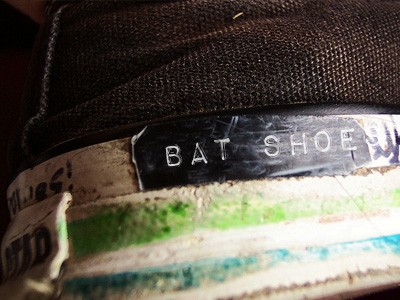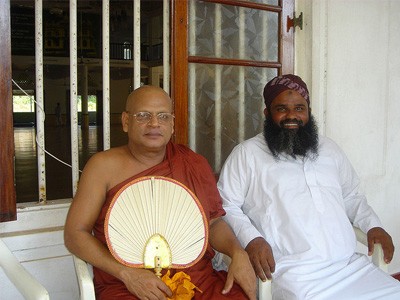The Ronco label maker
By J. S. B.

When I was a young boy, my family purchased one of those old-school label makers. Remember the one, with the dial and the trigger where you dialed up each letter then pressed the trigger to imprint the colored tape?
The TV series Batman was popular then, and I decided to label everything in my room just like everything was labeled in the Bat cave. I spent a good portion of a Saturday morning carefully printing out labels for everything in my room: Bat bed, Bat dresser, Bat desk, Bat lamp, Bat radio, etc. My Bat Mom, of course, wasn’t thrilled with my labeling,”They’ll leave marks on everything!”, and eventually she made me peel them all off. My Bat Mom was much wiser than I gave her credit for being.
We label things and people. It’s what we do. It’s how we learn about our world. When we are young and learning, we put labels on everything: Apple, Dog, Cat, Mom, Dad, Good, Bad. The problem arises when we carry this labeling to extremes, limiting our experience and forming rigid preconceptions about our world and about our fellow sentient beings.
I became a world-class labeler of people. I’d immediately label everyone I encountered: Pompous, Boring, Sexy, Funny, Angry, Stupid, Airhead. Once I slapped that label on you, it never came off, it would never change. That label dictated my interactions with you.
If only I had a label maker here in prison! This is a label maker’s paradise. The labels I could print up: Murderer, Bank Robber, Drug Dealer, Crack Head, Criminally Insane, Child Molester, and even Terrorist! Here, everyone has a pretty negative label.
Before I became a Buddhist, when I first arrived here, I spent weeks busily placing labels on people. And now, as I study the Dharma, trying to practice compassion for all sentient beings and develop bodhicitta, I’ve begun to realize how attached I’ve always been to my labels; how I become attached to people with ‘Good’ labels (Funny, Compassionate, Sexy), and avoid those with ‘Bad’ labels (Pompous, Stupid, Angry).
Recently, as I was waiting to shop at the commissary (it’s our Wal-Mart except since the BOP has labeled all of us as ‘Dishonest’ we aren’t allowed to roam the aisles), the adverse and limiting effect of my labeling hit me square in the face. Also waiting was one of the medical patients, a guy I recognized who lived on the fifth floor, where the sickest patients are housed, most are terminally ill. I could tell he wasn’t feeling well as he slumped in his wheel chair, leaning on an elbow, his eyes closed. Beside him stood… well, someone I had labeled as a ‘Thug’. Actually, I didn’t even have to put a label on him; T-H-U-G was tattooed in big letters down his arm. Everything about this guy, as far as I was concerned, exuded Thuggery, the scowl on his face; his pants hanging down past his butt; his gold teeth; his constant singing of angry rap song lyrics. I had completely dismissed this person as ‘Bad’.
As I watched, the patient said something to the ‘Thug’, who leaned over closer to hear what was said. He then placed his hand on the patient’s forehead, feeling for a temperature. The ‘Thug’ leaned down and said something to the patient, took hold of the wheelchair and pushed his sick friend off towards the elevator.
That simple act of placing his hand on the patient’s forehead, the act of a parent caring for a sick child, touched me. How could a ‘Thug’ do such a loving and compassionate thing?
I realized that no matter what label I placed on a person, they were capable of good. Those labels we do automatically place on everyone, narrows our perceptions of people, limits us from experiencing the whole person. Labels keep us from seeing the Buddha-nature that’s in each of us.
Being so accustomed to labeling people, I’m finding it difficult, when I encounter someone new, to not pull out my trusty old label maker. I’ve begun trying something Richard Gere does in his encounters with all sentient beings: he pauses and then generates the thought, “I wish you happiness.” That simple thought opens your mind up to that person, connects you with them. And if you are open and connected to people, you begin to understand their suffering and will begin to have compassion for them.
So, like my Mom told me so many years ago, I’m peeling off those labels, and hoping they don’t leave any marks.
Incarcerated people
Many incarcerated people from all over the United States correspond with Venerable Thubten Chodron and monastics from Sravasti Abbey. They offer great insights into how they are applying the Dharma and striving to be of benefit to themselves and others in even the most difficult of situations.


